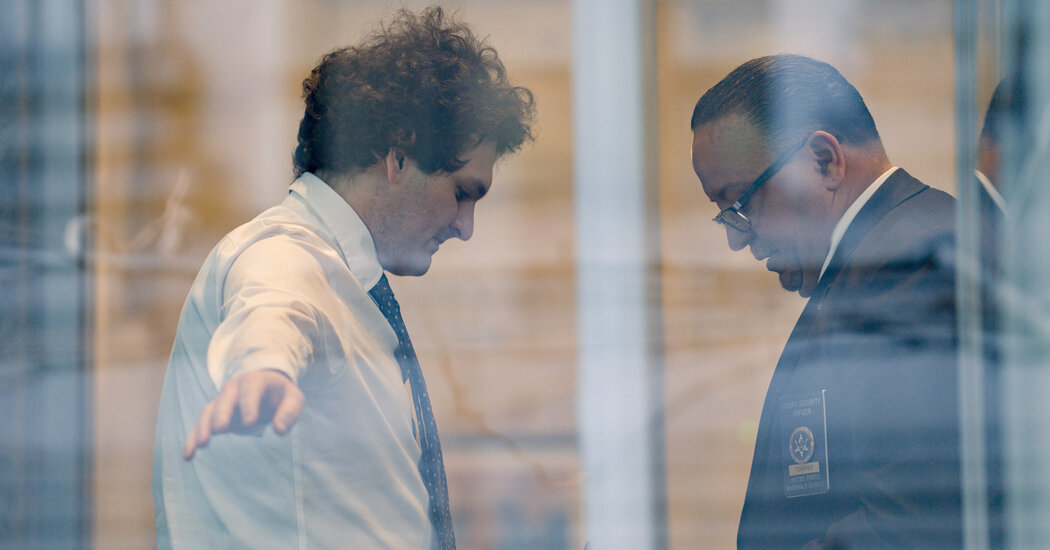Federal prosecutors investigating the collapse of the FTX cryptocurrency exchange said late Wednesday that they would drop, at least for now, several charges against the company’s founder, Sam Bankman-Fried.
In a court case, prosecutors said they would go to trial in October without pursuing five of the 13 charges against Mr Bankman-Fried – a series of allegations the government brought to court in the months after he was extradited to the crypto tycoon’s indictment. added. from the Bahamas in December. Among those charges was a count of bank fraud, as well as an allegation that Mr. Bankman-Fried had bribed a foreign government.
Mr Bankman-Fried has argued that prosecutors should not have charged him with new crimes following his extradition. But the retraction came with a major caveat: Prosecutors asked the judge overseeing the case, Lewis A. Kaplan of the Federal District Court in Manhattan, to schedule a second trial on those five charges in early 2024.
Prosecutors said the delay was a procedural necessity. This week, Mr Bankman-Fried won a ruling in the Bahamas, where FTX was based, giving him the opportunity to argue in court there that the Bahamian government should not agree to the additional charges. That legal dispute could take months to unfold.
In Wednesday’s lawsuit, prosecutors said it was uncertain when the Bahamas would decide whether to approve the new charges. They wrote that their move was to “simplify evidence at trial and ease trial preparation” for Mr Bankman-Fried.
Mr Bankman-Fried was arrested in December following the collapse of FTX, one of the largest crypto exchanges in the world. He agreed to be extradited on charges that he orchestrated a sweeping fraud in which he used billions of dollars in client deposits to fund lavish real estate purchases, charitable donations and crypto trading.
After arriving in the United States, Mr. Bankman-Fried was granted bail and allowed to remain under house arrest at his childhood home in Palo Alto, California.
In February, prosecutors filed a revised indictment, adding four charges to the eight in the original document. The new charges include allegations that Mr. Bankman-Fried had committed bank fraud and operated an unlicensed money transfer company.
A month later, prosecutors pursued another charge, accusing Mr. Bankman-Fried of paying $40 million in bribes to the Chinese government to unblock the trading accounts of Alameda Research, a hedge fund he owned.
In court filings, Mr Bankman-Fried’s lawyers have said the new charges violate elements of the extradition process between the Bahamas and the United States. In such cases, prosecutors are usually restricted from filing new charges after a defendant has been transferred.
Prosecutors said in a recent indictment that they would not prosecute the new charges unless the government of the Bahamas gave them permission. In this week’s ruling, a Bahamian judge cleared the way for Mr Bankman-Fried to challenge that permission in court.
Mr Bankman-Fried has also argued that several of the original charges against him should be dropped because they are too vague or contain other legal flaws. The initial indictment charged him with money laundering, securities fraud and campaign finance violations, among other charges.
His lawyers appeared in federal court on Thursday to press the case that some of those charges should also be dropped.

